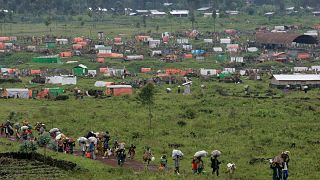Burkina Faso
Farmers in Burkina Faso are phasing out genetically modified cotton citing inferior lint quality of the crop.
The country was seen as an African success story in biotechnology (BT) and a model for other African countries.
Besides denouncing their contract with Monsanto, Interprofessional Cotton members are evaluating the amount of compensation that they will claim, based on losses related to the cultivation of transgenic cotton since 2008.
They say the BT variety produces shorter, less desirable fibre. The shorter length means poorer quality, which in turn means a lower price in the international market.
Farmers are not affected by the poor lint quality because they sell their cotton at a guaranteed price, set by the government.
However, because cotton manufacturers supply seeds and input to farmers, they can unilaterally phase out BT cotton.
Genetically modified cotton was commercialised in Burkina Faso in 2009. But during the first years of commercial release, Burkina Faso officials noticed declines in staple lengths and ginning ratios.
Monsanto employees blamed water stress and other weather problems. However, the quality problems persisted and by the 2013/14 season, over two-thirds of the nation’s crop was classified as lower-quality medium staple length, with only a third retaining its previous classification as medium to high staple length. The ginning ratio remains well below the 42 percent achieved by non-GMO cultivators.
AFP










01:00
Pix of the Day: July 10, 2025
Go to video
First Malaria treatment for babies approved
01:45
Empowering youth in agriculture could boost global economy, FAO report says
Go to video
Alliance of Sahel States puts on show of unity through inaugural games
01:31
Sahel region hardest-hit by terrorism worldwide, says Global Terrorism Index 2025
02:08
Gunman attack in north-central Nigeria: death toll climbs to 150